 W
WGelibolulu Mustafa Âlî bin Ahmed bin Abdülmevlâ Çelebi was an Ottoman historian, bureaucrat and major literary figure.
 W
WAntun Barac, was a Croatian historian.
 W
WMaja Bošković-Stulli was a Croatian slavicist and folklorist, literary historian, writer, publisher and an academic, noted for her extensive research of Croatian oral literature.
 W
WFrane Bulić was a Croatian priest, archaeologist, and historian.
 W
WIvo Goldstein is a Croatian historian, author and ambassador.
 W
WSlavko Goldstein was a Croatian historian, politician, and writer.
 W
WMirjana Gross was a notable Yugoslav-Croatian Jewish historian and writer.
 W
WZlatko Hasanbegović is a Croatian far-right politician and historian who has served as a member of the Croatian Parliament since 2016. He served as Minister of Culture in the Cabinet of Tihomir Orešković from 22 January to 19 October 2016. Hasanbegović is also a member of the Zagreb Assembly and one of the founders of the Independents for Croatia party.
 W
WHrvoje Klasić is a Croatian historian. Since 2003 Klasić is a professor at the Department of History at the Faculty of Humanities and Social Sciences of the University of Zagreb. His work focuses on contemporary Croatian and world history. Klasić is a prominent critic of attempts at rehabilitation of the World War II fascist Ustaša movement in the country. He is ambassador for the European Association of History Educators.
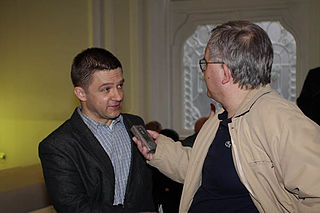 W
WTvrtko Jakovina is a Croatian historian. Jakovina is a full time professor at the at the Department of History at the Faculty of Humanities and Social Sciences of the University of Zagreb.
 W
WJosip Jurčević is a Croatian historian, historical negationist and politician.
 W
WLjubo Karaman was a Croatian historian, art theorist and conservator. After graduating from the Classical Gymnasium in his hometown of Split, Karaman enrolled at the University of Vienna where he graduated in history and geography in 1910 and later in art history. After a few years of working as a highschool professor in Split and Dubrovnik, Karaman became an assistant in the Regional Conservation Office of Dalmatia in 1919 and chief conservator in 1926. In 1941 he was pressured by the Italian authorities in Axis-occupied Split to move to Zagreb, where he would head the Zagreb Conservation Office until his retirement in 1950. The bulk of his work involved monuments in Dalmatia dating from ancient times until the Baroque.
 W
WJulije Kempf was a Croatian historian and writer. Kempf was born in Požega, Slavonia. After graduating from Požega gymnasium, he attended teachers school in Zagreb. Afterwards, he worked in Novi Vinodolski as a teacher, before returning to Požega in 1885 to teach in Elementary school for boys.
 W
WNada Klaić was a Croatian historian. She was a Croatian medievalist of the 20th century. A substantial part of the work was devoted to criticism of medieval sources.
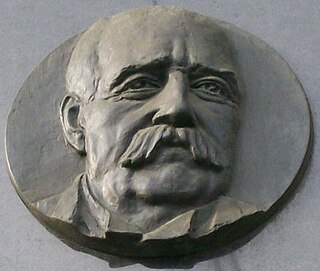 W
WVjekoslav Klaić was a Croatian historian and writer, most famous for his monumental work History of the Croats.
 W
WStjepan Krasić is Croatian historian, theologian and Roman Catholic friar of the Order of Preachers, member of the Croatian Dominican Province and member of the International Academy of Engineering.
 W
WIvan Kukuljević Sakcinski was a Croatian historian, politician and writer, most famous for the first speech delivered in Croatian before the Parliament. Considered a renowned patriot, Kukuljević was a proponent of Illyrian movement and avid collector of historical documents, primarily those for his work in Croatian historiography and bibliography.
 W
WŠime Ljubić was an Austrian Croat theologian, archeologist and historian.
 W
WMladen Lorković was a Croatian politician and lawyer who became a senior member of the Ustaše and served as the Foreign Minister and Minister of Interior of the Independent State of Croatia (NDH) during World War II. Lorković led the Lorković-Vokić plot, an attempt to establish a coalition government between the Ustaše and the Croatian Peasant Party and align the Independent State of Croatia with the Allies.
 W
WJohannes Lucius was a Dalmatian historian, whose greatest work is De regno Dalmatiae et Croatiae, which includes valuable historical sources, a bibliography and six historical maps.
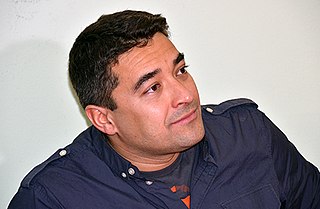 W
WDragan Markovina is a Croatian historian, author and former president of the New Left Croatia party.
 W
WGiovanni Thomas Marnavich or Joannes Thomas Marnavich or Ivan Tomko Mrnavić was a Roman Catholic prelate who served as Bishop of Bosnia (1631–1639) and an author of historical works. He was the author of several forgeries, with the most famous being that of the Life of Justinian. He also wrote a book on the Life of Saint Sava.
 W
WMatija Mesić was a Croatian historian, university professor, the first rector of the University of Zagreb.
 W
WMate Meštrović, also known as Matthew Mestrovic, is an American journalist and academic, Croatian lobbyist, politician and ambassador. The son of Croatian-American sculptor Ivan Meštrović, he attended grade school in Zagreb before his family moved to Italy in 1942.
 W
WNatko Nodilo was a Croatian politician, historian, publicist, university professor, and chancellor of the University of Zagreb.
 W
WGrga Novak was a distinguished Croatian historian, archaeologist and geographer, and President of the Yugoslav Academy of Sciences and Arts from 1958 to 1978. Born on the island of Hvar, he was Professor of Ancient History in the University of Zagreb, where he was also Rector between 1946 and 1947. He is best known for pioneering archaeology in Croatia, and his publications on the history of Dalmatia, Split, Dubrovnik, Hvar and the Adriatic Islands.
 W
WBazilije Stjepan Pandžić was a Herzegovinian Croat historian, archivist and orientalist. He entered the Franciscan Order in 1935 and was ordained for a priest in 1941. From 1947 to 1985 he was the general archivist and analyst of the Franciscan Order in Rome. In 1958 he was elected vice-president of the International Association of Church Archives. He turned 100 in January 2018 and died in April 2019 at the age of 101.
 W
WIvo Pilar was a Croatian historian, politician and lawyer. His book The South Slav Question is a work on the South Slav geopolitical issues.
Franjo Rački was a Croatian historian, politician and writer. He compiled important collections of old Croatian diplomatic and historical documents, wrote some pioneering historical works, and was a key founder of the Yugoslav Academy of Sciences and Arts.
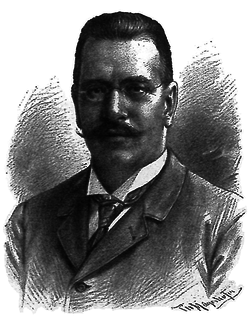 W
WMilan Rešetar was a linguist, historian and literary critic from Dubrovnik.
 W
WPavao Ritter Vitezović was a Habsburg-Croatian polymath, variously described as a historian, linguist, publisher, poet, political theorist, diplomat, printmaker, draughtsman, cartographer, writer and printer. He is also known for his expansionism advocacy.
 W
WTadija "Tade" Smičiklas was a Croatian historian and politician. He was a professor at the Zagreb university and a member of the Croatian Academy. A member of the Illyrianist People's Party, he supported the independence of Croatia from the Austrian Empire. He authored the first history book on Croatia and laid the foundation of Croatian historiography.
 W
WMilan Šufflay was a Croatian historian and politician. He was one of the founders of Albanology and the author of the first Croatian science fiction novel. As a Croatian nationalist, he was persecuted in the Kingdom of Yugoslavia, and his murder subsequently caused an internationally publicized affair.
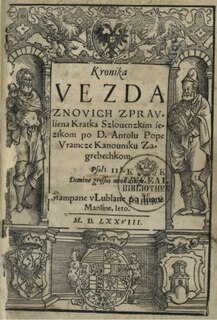 W
WAntun Vramec (1538–1587/8) was a priest and writer who wrote the first historical book in the Slovenian language. As it was the second book written in the Kajkavian dialect, he was also a founder of the Kajkavian literature.